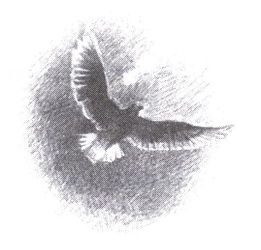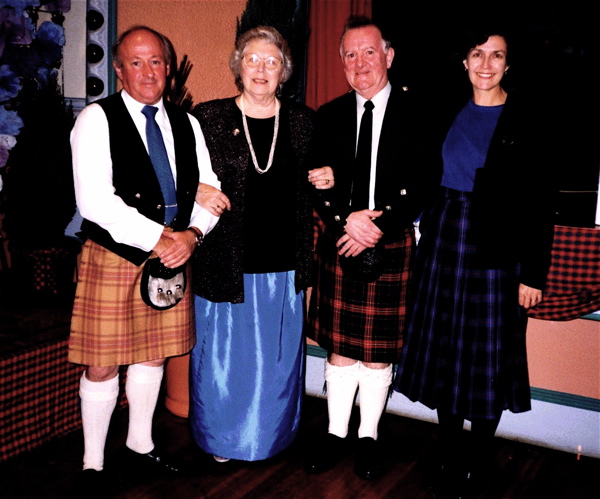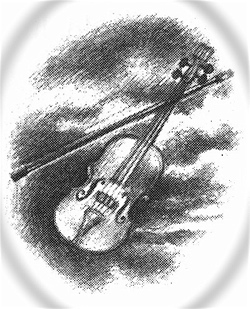|
Writing Forbidden
Writing Forbidden
By Anthony Hill
Some stories take a long time to grow and nurture from the seed of a simple idea into their final shape. It took four years before my desire to write a war book developed into Soldier Boy - the biography of the youngest known Anzac, James Martin.
Other stories, however, seem to spring into the mind fully formed and complete. As an author, all you really have to do is to write them down, like taking dictation. Forbidden is one such tale.
What are you going to write next?
 It was at an engagement party a few years ago. Talking to a young girl who had read some of my books, she asked what I was planning to write next. I replied that I was going to Britain for a holiday; and as I hoped to visit Scotland again, I’d like to think of an idea for a book to research on the way. It was at an engagement party a few years ago. Talking to a young girl who had read some of my books, she asked what I was planning to write next. I replied that I was going to Britain for a holiday; and as I hoped to visit Scotland again, I’d like to think of an idea for a book to research on the way.
Suddenly, the story flashed into my mind of a boy who is taught to play an enchanted fiddle by a ghostly old man, and who thus brings the music back to his remote Scottish island where it’s been forbidden for 100 years. I stopped in mid-sentence, stammering somewhat, as the little drama acted itself out on the stage of my imagination. It must have only taken a second or two: but there it was, wholly before me. And certainly when I got home that night, I began putting down the first, spare draft of the story.
Such brief moments of inspiration don’t happen very often. But when they do, they not only completely seize you with the idea. They also leave you a little bewildered as to where they’ve come from.
In one sense, they seem like the proverbial ‘bolt from the blue’. But in another sense, you know they’re formed from fragments of your own experience, personality, interests, and receptiveness to story and metaphor. All those elements of self, in fact, which swim in the depths of the unconscious, until they cohere and rise to the surface as stories. Or dreams.
Fragments of Experience
I am a fourth generation Australian on both sides of my family, but there is a Scottish ancestry through my mother. It was often spoken about when I was a boy, though not in any serious way. It has only been in the past ten years that the Scottish blood started flowing more strongly through my veins.
I took up Scottish Country Dancing in Canberra as a recreation, and put on the kilt for the first time. As I play the piano, it wasn’t long before I was playing the lovely Scottish melodies – the airs, jigs, reels and strathspeys – to which we danced. And, as ‘live’ music is always best, my friend Jenny Corvini and I soon began playing piano duets for classes and social dances.
We were joined by a fiddler, Matthew Robertson, who gave us our first real lessons in the Scottish musical tradition. Indeed, we called our little band ‘Scotch Fingers’, just for fun. When Matthew left for Melbourne, his place was taken by Verona Burgess, who continued our education.
Verona spent six years in Scotland, including four years in the Shetland Islands collecting music and studying with the legendary fiddler, Tom Anderson. She has a solid understanding of the distinctive Shetland music, which our little band has been playing for our own pleasure and for friends in concerts at home.

Un-band! Anthony (left) in his Australian tartan kilt with friends Jean Conway, Hugh McKenna and Verona Burgess
The "vice" of music
It was during these sessions that Verona talked about the history of Scottish music, and especially of the attempts by the strict church to suppress the ‘vices’ of music and dancing in many parts of Scotland during the 18th and 19th centuries.
In particular, she told of one contemporary Scottish fiddler who had grown up believing there had never been any tradition of fiddle playing on his island. It was only as an adult that he discovered there had once been much music – but that all the fiddles had been burned in centuries past.
As Mary Anne Alburger remarks of these church repressions in her book Scottish Fiddlers and Their Music, ‘Many fiddles were destroyed … enough on one occasion to provide a bonfire – under the watchful eye of the revivalist minister’ (p 170).
The social and political basis of the island world in which the story of Angus and his enchanted fiddle takes place at the turn of the 20th century, is therefore real enough.
Nor should it be thought that the suppression of music and its pleasure by religious fundamentalism was limited to Scotland. It has happened in many parts of the world down to the present day – as we saw in the delight on the faces of the Afghani people, allowed to hear their music again after the fall of the Taliban regime in 2001.
While the setting of Forbidden has this underlying historical reality, everything else – including the ghost - was entirely imagined during those few short seconds of inspiration mid-sentence at the engagement party.
Three versions of Forbidden
The first version of the tale was fairly spartan, told in the somewhat detached language of an old legend. In the second version, I fleshed out more fully the characters and the nature of the island, based on the people and the beauty of the landscape I saw during my visit to the west coast of Scotland in 1997.
It was only in the third version that I added the outer story of the modern boy Mac, his professed loathing of fiddle music – wanting to ban it, indeed - and the opportunity this gave old Dougal to tell him the tale of Angus, his enchanted fiddle, and the forbidden music.
Essentially, it was done to help make the book more accessible to today’s generation of young readers. Why else should they be interested in a story about Scotland 100 years ago?
Resonances
I must say that Mac’s story started off as rather light-hearted in approach. It was only at the end when, to my surprise, the fiddle also started to hum for Mac, that the narrative suddenly dived beneath the surface and touched some of the deeper resonances I hoped were present in the book …
Courage. Human frailty. Rejection. Fear in the face of oppression or ridicule. Finding the strength to resist it – perhaps from sources beyond, but ultimately from within yourself.
Above all, there is the power and beauty of music: something that I discovered as a boy and which, once it is acknowledged and embraced, enables you to touch some of the most liberating, universal and joyous experiences known to the human spirit.
Anthony Hill, Canberra 2003
|